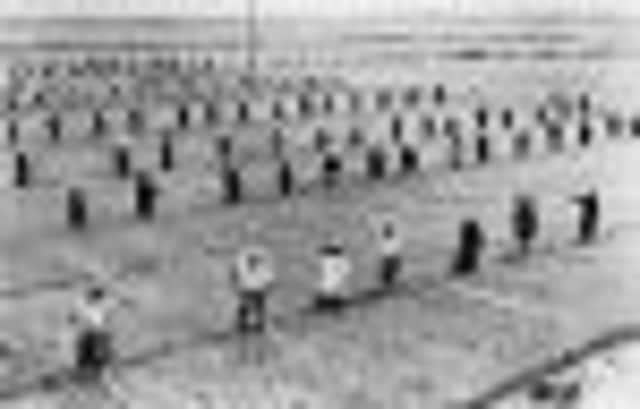Book review: Tombstone: The Untold Story Of Mao’s Great Famine


His comrade Ke Qingshi had told the party what their country would look like in 15 years: “Everyone is literate and well-informed, everyone can read Das Kapital and is proficient in calculus. Flies, mosquitoes, bedbugs, rats, sparrows and other pests are all long extinct.” And yet, within four years, upwards of 40 million human lives had been extinguished in the worst famine China has known, and one of the worst in human history.
This monumental work by Yang Jisheng is a three-fold Tombstone: for his father, who died of starvation in 1959; for the millions of others who perished; and for the “totalitarian” system which “facilitates the development of extremely flawed policies and impedes their correction”.
Advertisement
Hide AdDrawing on archival sources and interviews with survivors, Yang paints a harrowing fresco of the utopian folly that was the Great Leap Forward. In the aim of achieving communism in the space of a few years, the Maoist regime embarked on a breakneck programme of massive industrialisation and irrigation projects.
At the same time, the forced collectivisation of agriculture and the procurement of grain for export dislocated the countryside and drained the peasantry of food. The employees of the new “Sputnik” communes were ordered to attack their work “like a swarm of bees.” But this was hard to do when stocks of rice and livestock had been requisitioned or devoured before the hot-blooded communist cadres arrived. It was not long before cannibalism became rife, with some mothers even cooking and eating their children.
The Communist Party’s initial response was to falsify output figures and dismiss deaths as caused by epidemics. Mao may have styled himself as the last and most powerful emperor of China and penned yet another poem describing opponents as “sons of bitches” but even he was forced to tell his followers: “A man has to be better than a pig; when you hit a wall, you need to change direction.”
Under the calming influence of that unsung other “helmsman” Zhou Enlai, more realistic targets were adopted, while there was a limited return to private property. However, the “rash advance” of 1958-1962 had come at a terrible cost. This did not stop the incorrigible Mao launching the equally disastrous Cultural Revolution and calling on the fanatical Red Guards to bombard Communist Party headquarters. It would only be in 1978 that, under the direction of Deng Xiaoping, the Communist Party would embark successfully on market reforms and, with that, the hollowing out of their ideological base.
Yang has been compared to the Soviet dissident Alexander Solzhenitsyn, author of The Gulag Archipelago. There are certainly similarities: like the Gulag, Mao’s Great Famine is no secret and belongs to a now relatively distant past. Yang is also like Solzhenitsyn through his explicitly political use of the famine. His ultimate target is the Chinese Communist Party that holds its congress this month: “I firmly believe that China will one day see totalitarianism replaced by democracy.” But, as with Solzhenitsyn, this emphasis on the “totalitarian” lessens the force of the book.
The story of the famine shows us precisely how “untotalitarian” the communist system really was and is, riddled by intrigue and “struggle” while showing itself eventually capable of rectifying mistakes. Yang turns a blind eye to the brutal dictates of the market economy: no-one complained about food imports from China during the famine, unless they were of poor quality; Yang shows no concern about the sweat-shop conditions in western-owned factories that are driving Chinese workers to suicide. At the same time, if the “excess deaths” calculated by Yang make gruesome reading, he does not give his former party credit for the eradication of illiteracy, a great leap forward for women’s rights, and a huge rise in life expectancy.
Advertisement
Hide AdAt the end of this compelling portrait of a massive population thrown into chaos, the author himself is rightly prudent about the prospects of the country which has banned his work: “An overnight imposition of democracy combined with the radical actions of anarchists could cause a weak regime to lost its ability to control society and allow the emergence of a new dictator.” «